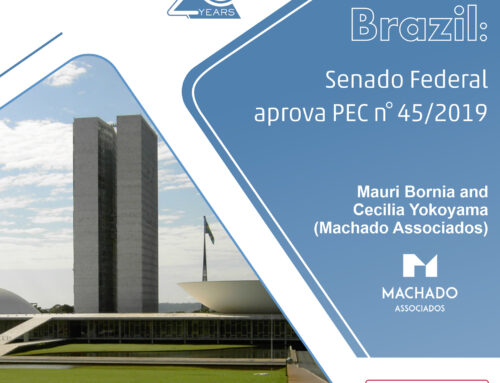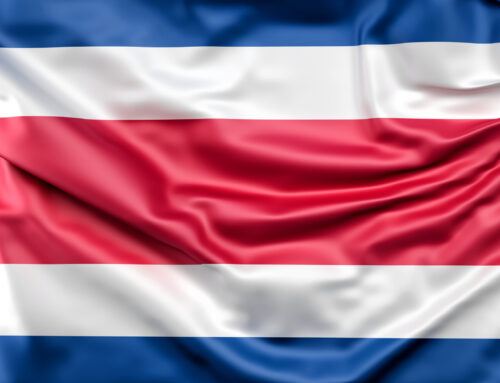Brazil: Brazilian government reduces IPI rates
Gabriel Caldiron Rezende of Machado Associados discusses the excise tax (IPI) reduction made by the Brazilian federal government, the steps taken to reach a reduction of 35%, and the controversies on the horizon.
After several uncertainties, the Brazilian federal government has cut IPI rates for most products by 35%, in an effort to boost the Brazilian economy after the COVID-19 pandemic.
IPI is a federal excise tax that is levied on sales of products by manufacturers and other entities held equal to manufacturers by law, as well as on imports and the subsequent resale of imported products.
As an excise tax, IPI is used to promote or discourage the consumption of certain products. Therefore, its rates vary depending on these products’ tariff code and whether they are essential or not. The rates may be as low as zero or reach higher rates, such as 300% for cigarettes, but generally they range from 5% to 20%.
IPI rates are established by the IPI taxable products table (TIPI), which is set by a decree.
First rates reduction
On February 25 2022, the federal government issued Decree 10709/2022, cutting IPI rates by 25% for most products, which were set out in TIPI/2017 approved by Decree 8950/2016. Exceptions apply to passenger transport vehicles, to which an 18.5% reduction was granted, and to tobacco products, for which the rates remained unchanged.
Although the IPI cut was received as very good news, it was most likely made in a rush, as it did not consider that TIPI/2017 was to be revoked on April 1 2022, when the new TIPI/2022 (Decree 10923/2021) would enter into force, without the reduced IPI rates.
In view of this, several political discussions arose, including over whether the IPI reduction would be extended to TIPI/2022. In this context, the federal government announced that further reductions could be made.
While the discussions were carried out, Decree 11021/2022 was published on March 31 2022, delaying the effective date of TIPI/2022 to May 1 2022. Subsequently, Decree 11047/2022 was issued on April 14 2022. This altered TIPI/2022 to provide new IPI rates, equal to those resulting from the reductions provided for by Decree 10709/2022.
Further rates reduction
Finally, when taxpayers were settled with the IPI rates provided by Decree 11047/2022, Decree 11055/2022 was published on April 29 2022, providing for further reductions of the IPI rates of TIPI 2022.
As a result, the IPI rates have been generally reduced by 35% in relation to the ones originally stipulated by TIPI/2017 and TIPI 2022. Exceptions apply, such as passenger transport vehicles (which maintained the 18.5% reduction) and tobacco products (which suffered no reductions).
With this, TIPI/2022 entered into force on May 1 2022, with a substantial IPI rate cut.
Controversies on the horizon
Although the intentions behind the IPI reduction were good, some controversies and drawbacks arose. Although the IPI reduction benefits Brazilian industry by reducing companies’ tax burden, it also applies to imported products, thus also increasing their competitiveness in the Brazilian market, to the detriment of the local industry.
Additionally, the IPI reduction could jeopardize the benefits applicable to manufacturers located in the Manaus Free Trade Zone (ZFM) in the state of Amazonas. These manufacturers generally benefit from an IPI exemption, provided that certain conditions are met.
The state of Amazonas has already taken measures against Decree 10709/2022 by filing Unconstitutionality Declaratory Action (ADI) 7174. The state has also announced that it intends to challenge the latest reduction made by Decree 11055/2022.
Finally, the political party Solidariedade also challenged the IPI reduction through ADI 7153. Justice Alexandre de Moraes of Brazil’s Supreme Federal Court (STF) granted a preliminary injunction to suspend this tax reduction in regards to products manufactured in the ZFM.
However, the decision is not clear about its reach. It is unclear if only the products manufactured in the ZFM will be exempt from the IPI reduction. In this case, although the products exempt from the IPI, they will grant a manufacturer purchaser a credit calculated with the full rate.
The other scenario is that competing products manufactured outside the ZFM will not benefit from the IPI reduction.
The reduction or increase of IPI rates by the federal government is constitutionally authorised and can be freely made. Therefore, this dispute is unprecedented, and needs to be closely followed.
Writer: Gabriel Caldiron Rezende of Machado Associados
Original: https://www.internationaltaxreview.com/article/b1y5ygy7014pdq/brazilian-government-reduces-ipi-rates





